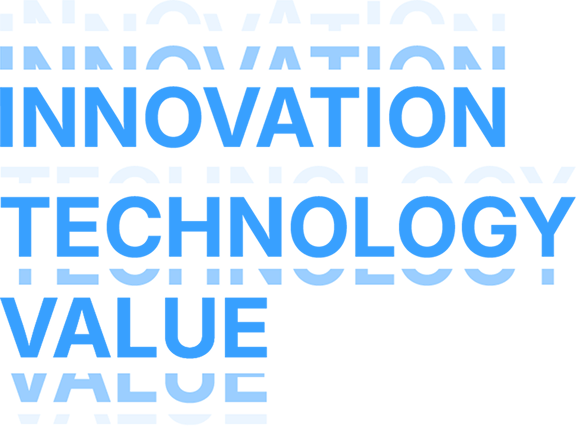With South Korean companies deepening their presence in Vietnam’s technology landscape, Korean language proficiency has become a highly valuable asset in the Information Technology (IT) industry. However, learning Korean, especially for technical purposes, comes with its unique set of challenges. This blog explores the benefits of mastering Korean language skills in Vietnam’s IT industry and the obstacles that learners must overcome.
Challenges in South Korea’s IT Workforce
South Korea currently needs more IT professionals, a challenge made even more pressing by the increasing importance of technology in the global economy. The rapid growth of industries such as e-commerce, fintech, and healthcare has intensified the demand for skilled IT experts.
This workforce dilemma stems from a mismatch between supply and demand. Between 2016 and 2020, the annual number of software graduates in South Korea remained stagnant at around 32,000. Meanwhile, the acceleration of digital transformation, particularly during and after the COVID-19 pandemic, has led to a sharp rise in demand for software talent. Emerging technologies such as artificial intelligence, big data, and digital platforms are driving changes across major industries, pushing companies to compete fiercely for IT engineers, resulting in a “talent war” in the recruitment sector.
A recent survey by the Ministry of SMEs and Startups in South Korea revealed that over 75% of respondents reported difficulties in hiring and retaining local software engineers. The main challenges cited by businesses include the overall shortage of IT talent and the significant wage disparity between small-to-medium enterprises and large corporations.
The Demand for Korean Language Skills in IT Industry
In recent years, Vietnam has witnessed a substantial increase in the presence of South Korean enterprises in the Information Technology (IT) industry. Major companies like Samsung, LG, and other tech companies have heavily invested in Vietnam, fueling collaboration in technology, digital transformation, and software services. This expanding network of projects has amplified the demand for Vietnamese employees with proficiency in the Korean language, particularly in the IT field. According to a report by the Korean Chamber of Commerce and Industry (KCCI) in Vietnam, over 9,000 Korean businesses operate across the country.
IT professionals in Vietnam with Korean language skills are highly sought after, especially for roles like project management, software engineering, IT comtor, and customer service, as these positions often involve direct interaction with Korean customers or stakeholders. As the partnership between Korean and Vietnamese businesses strengthens, Korean language skills have become a competitive advantage in the job market.
Current Landscape of Korean Language Skills in Vietnam’s IT Industry
The number of people learning Korean in Vietnam has surged. Data from the National Institute of Korean Language shows that from 2018 to 2023, the number of Vietnamese learning Korean doubled, with approximately 200,000 students nationwide.
Several language centers have started to offer specialized Korean language courses tailored to IT and technology. These programs provide essential language skills for professional communication and introduce key tech-related terminology, equipping students and employees with the tools to navigate a Korean-speaking work environment more confidently. This trend reflects a growing recognition of the value of Korean language skills in achieving career advancement in Vietnam’s competitive IT sector.
Benefits and Challenges of Learning Korean in the IT Industry
Benefits
- Expanded Job Opportunities: As the presence of South Korean companies in Vietnam’s IT sector grows, proficiency in Korean opens up diverse job opportunities. Many Korean companies prioritize candidates who can effectively communicate across language barriers, making bilingual candidates more competitive in the job market.
- Competitive Compensation: Korean language skills are highly valued, often resulting in 10-20% higher salary offers for those who are proficient. Employees with Korean language skills can assist with direct communication and coordination with Korean stakeholders, which is a crucial skill in many project management, software development, and client support roles.
- Career Advancement: Knowing Korean can fast-track career progression, especially within companies that partner with or are headquartered in South Korea. Language skills often lead to leadership roles or specialized positions where bilingual communication is essential for international collaborations.
- International Project Opportunities: Proficiency in Korean allows employees to participate in or even lead projects with South Korean teams, enabling them to work on-site in Korea or manage cross-cultural teams remotely. This exposure to innovative technology practices in Korea also enhances technical skills and gives employees a valuable perspective on global tech trends.
Challenges
- Language Complexity: The grammatical structure and vocabulary of Korean are significantly different from Vietnamese. Mastering these aspects requires a dedicated effort, especially for IT professionals balancing language learning with their technical work. Korean’s honorific system, complex syntax, and nuances in business language can be challenging for new learners.
- Limited Technical Resources: While general language resources are available, technical materials in Korean relevant to IT are often limited. This makes it challenging for learners to gain specialized knowledge in Korean. Access to materials like coding guides, programming documentation, and software manuals in Korean remains restricted, leading many to rely on English or Vietnamese resources, which can create gaps in industry-specific language skills.
- Specialized Vocabulary: Many Korean language courses focus on conversational skills or general business Korean, leaving a gap in tech-specific terminology. IT professionals may struggle to find resources or courses that cover the terminology necessary for software development, coding, and digital project management, making it harder to engage fully with Korean colleagues on technical subjects.
- Time Commitment: Balancing language learning with a demanding IT career can be challenging, as mastering Korean requires consistent practice and exposure. Unlike English, which is commonly used in IT, Korean requires more immersive study to achieve proficiency, which can be difficult for professionals with limited time.
The Future of Korean Language Skills in IT Industry
Given the rapid growth of the IT industry and the deepening Vietnam-Korea collaboration, Korean is set to remain a vital language in the industry. It is predicted that in the next 5-10 years, the number of IT professionals fluent in Korean could triple, especially as universities and vocational institutions increasingly integrate Korean language programs into their technical curricula.
Moreover, technology companies are starting to support their employees’ Korean language development through in-house training or by funding external language courses. Investing in this skill can be beneficial not only for employees’ personal growth but also for the company’s global competitiveness. In an internationalized market, Korean proficiency in IT teams can foster better communication, smoother project execution, and stronger relationships with Korean partners.
South Korea’s Growing Appeal for International Students in IT Industry
South Korea’s focus on STEM (Science, Technology, Engineering, and Mathematics) and IT fields is a major factor driving international students to its universities. The government’s “Study Korea 300K Project” aims to attract 300,000 international students by 2027, with a strong emphasis on STEM disciplines. Scholarships for these fields have been doubled to 2,700, reflecting the country’s commitment to nurturing tech talent. Many universities collaborate with leading tech companies, offering students internships and hands-on training opportunities that enhance their employability in a competitive global job market.

Source: Ministry of Education (english.moe.go.kr)
In 2023, international enrollments in South Korea reached 207,125, marking a 17.6% increase compared to the previous year. STEM programs are particularly popular among students from countries like India, Vietnam, and Pakistan, aligning with the nation’s goal of addressing the rising demand for skilled professionals in technology sectors. Additionally, the government has streamlined pathways to permanent residency for graduates in these fields, reducing the residency requirement from six years to three.
VTI’s Efforts to Meet the Growing Demand for Korean-Speaking Talent
To meet the growing demand for Korean-speaking IT professionals, VTI has implemented a strategic approach focused on talent development and local integration by establishing VTI KOREA in South Korea, directly addressing the talent shortage and ensuring better access to local expertise.
In addition, VTI has formed partnerships with Korean language departments at universities, aiming to connect with students who are interested in pursuing careers that require both technical and language skills. Also, VTI offers Korean language courses for our employees. These courses are specifically designed to enhance the language skills needed to communicate effectively with Korean customers.
Contact us today to learn how VTI can help your business address the shortage of Korean-Speaking
![[FREE EBOOK] Strategic Vietnam IT Outsourcing: Optimizing Cost and Workforce Efficiency](https://vti.com.vn/wp-content/uploads/2023/08/cover-mockup_ebook-it-outsourcing-20230331111004-ynxdn-1.png)





